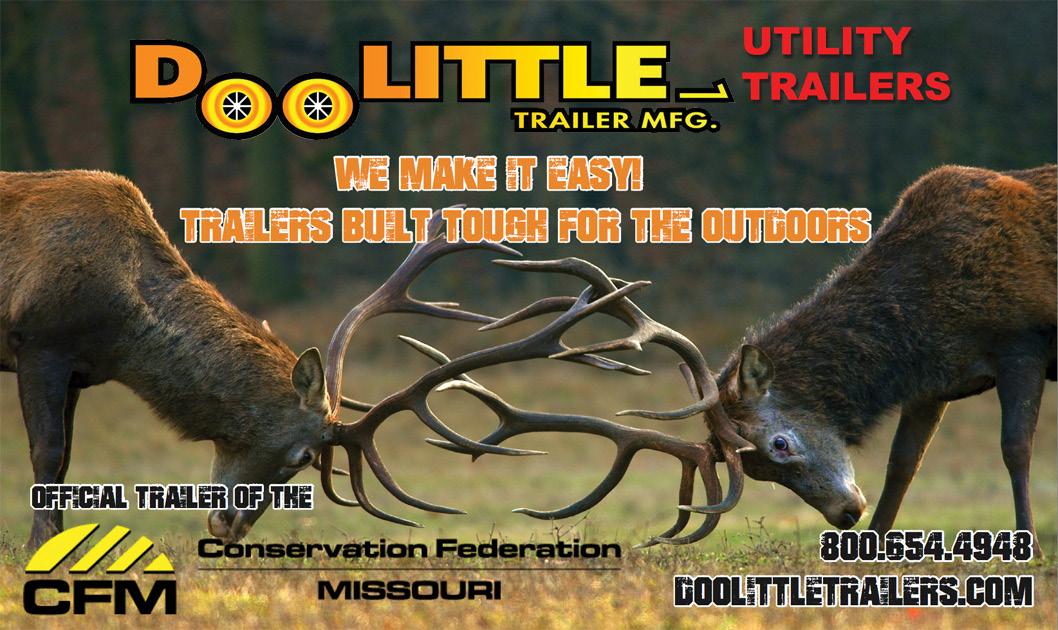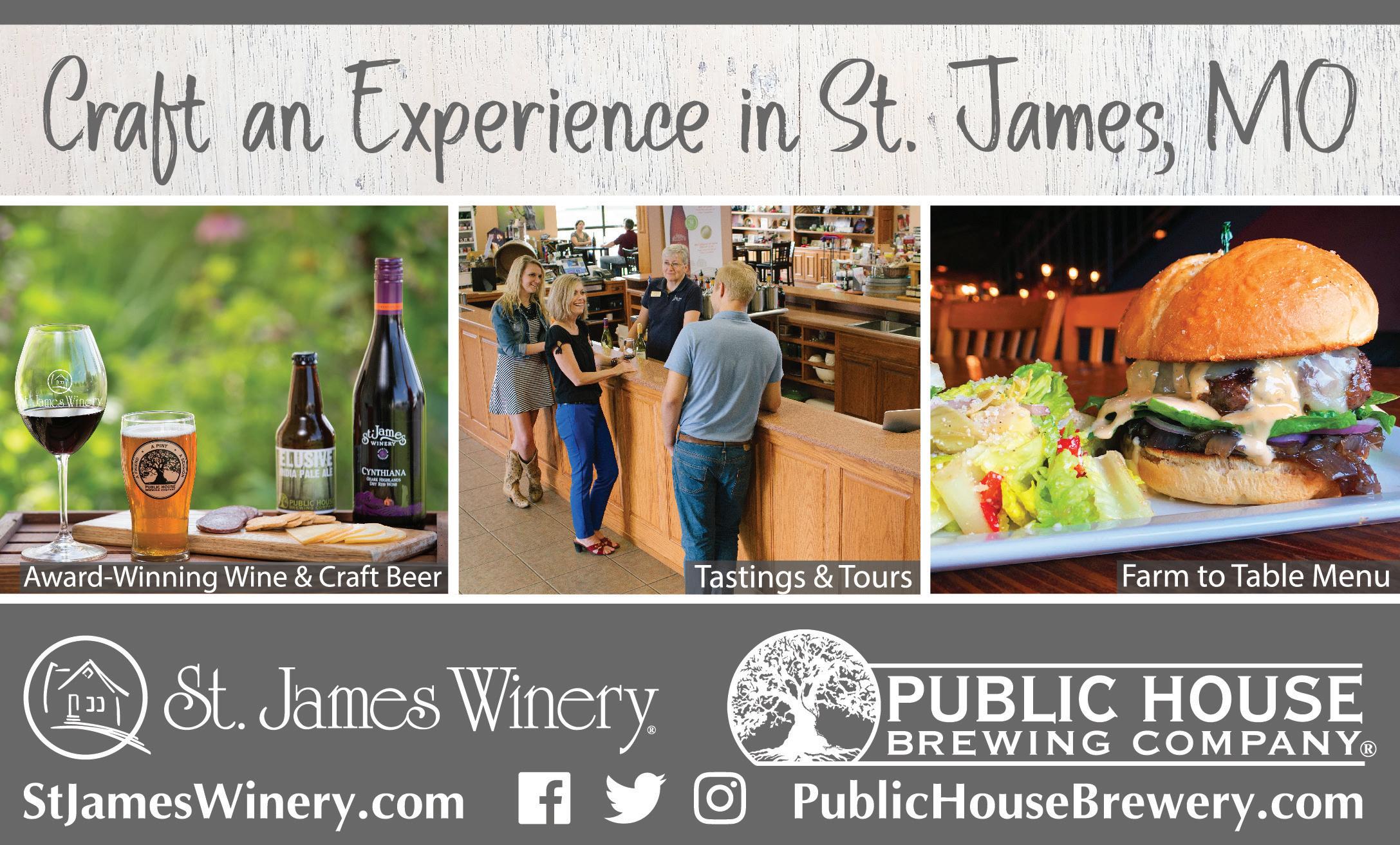
4 minute read
What Would Aldo Do?
Ijoined another conservation organization last October. I can’t afford to join them all, so I tend to maintain membership in a few and float in and out of a few more. My choices align mostly with my interests. I love duck hunting and trout fishing, so naturally, Ducks Unlimited (DU) and Trout Unlimited (TU) are perennials. Also, I chose these because they are very much big picture organizations, something I feel we need more of as social, political, and economic forces exert greater pressure on our fish and wildlife resources.
On a smaller scale, I’m a life member of the Conservation Federation of Missouri (CFM), an organization I support in various ways because of its advocacy work in support of the Missouri model of conservation, and dedication to developing young conservation leaders. I also belong to the Brule River Sportsmen’s Club (BRSC), a small organization dedicated to the Bois Brule River in Northwestern Wisconsin, a river with a storied history and a place I enjoy spending time, flyrod in hand.
My most recent addition to the membership list is Backcountry Hunters and Anglers (BHA). For me, the jury is still out on how well this organization fits with my personal values, but I really like what it represents, and again, it’s more about the big picture stuff. I particularly like its activism in support of access to public land.
There are at least another dozen or so I’ve supported from time to time including National Wild Turkey Federation (NWTF), Ruffed Grouse Society (RGS), Whitetails Unlimited (WU), National Deer Association (NDA), The Wildlife Society (TWS), Theodor Roosevelt Conservation Partnership (TRCP), and National Wildlife Federation (NWF). Again, my choices are usually driven by my interests, like fishing and hunting, but after a lifetime of work in conservation, I am selective. I look for organizations with a broader purpose, a commitment to the science of conservation, education, and a willingness to collaborate with other groups to achieve a greater good. I also like to see some amount of political advocacy because the people occupying the chairs in state legislatures and Congress are often among the greatest impediments to fish and wildlife conservation.
Looking at the history of fish and wildlife conservation, enough cannot be said about the importance of these groups, although I get a little concerned about how the substantial influence of those of us in the hunting, fishing, and greater conservation community can be diluted somewhat; membership and money spread too thin. There’s also a pretty substantial list of organizations I’d never join. Many have appealing names and compelling mission statements designed to help lure membership funds. But their agendas are sometimes misguided or deceptive, not very collaborative, and often pretty radical for my liking.
So, what would Aldo do? I’m speaking of Aldo Leopold, one of the most important influencers and voices of the American conservation movement. During his lifetime, he was a founding member of The Wilderness Society, The Wildlife Society, and was active in numerous other conservation groups. With so many choices, needs, and issues today, where would he put his commitment?
Of course, it’s impossible to say, but I think it’s likely he would’ve continued to think deeply about the practice and teaching of conservation, the role of the land and the landowner, and the relationships between wildlife, people, and habitat. I suspect he would be simultaneously pleased and dismayed, yet not surprised by the state and condition of our nation’s fish and wildlife; likely impressed by the number and array of organizations devoted to conservation, and the diversity within their ranks, but equally amazed by the amount of discord and failure to come together around central purposes. And perhaps a little disappointed that hunters and anglers still quibble way too much over petty and mostly inconsequential topics instead of addressing the major challenges we face – the condition of the land and water, habitats, ecological systems, and the biodiversity they enable and sustain. I have a hunch he’d also have some interesting things to say about the impacts of climate change. One thing for certain, he would not rest on his laurels leaving it to others to pick up the slack.
For the rest of us, the choice may be a little harder. Conservation embodies so much, whether it be clean air and water, the beauty and diversity of the natural world, human health, recreation, economic well-being, or important societal traditions. Finding an organization that aligns with your personal values can be challenging.
So where to start? Reading this article means you probably already have some insight into this question. The Conservation Federation of Missouri with its wellestablished reputation and 87-year history is a great place to begin.
CFM members and events will help you to understand the importance of local grassroots support of conservation causes. Scan the list of affiliate organizations and you will quickly see a wide array of causes and topics, all needing more voices, support, and volunteers.
Still not sure? Do your research. Ask around. Talk to members. Get on websites and investigate. Who are they really and what do they do? Look past the mission statements and braggadocious proclamations. Find out what others say about them. Are they in the news? Are they respected? Are they well established? Are they committed to the work of conservation?
Ready to choose? Don’t select based on emotion. There are countless groups appealing to your feelings and emotions with sad pictures and videos, stories of desperation, and doom and gloom narratives designed to separate you from your money. Be objective.
Don’t shy away from the groups with roots in the hunting and fishing communities. Hunters and anglers are the original conservationists. It’s not just a cliché, and many of these groups in spite of your perceptions and what you might believe, recognize the need for broad efforts and commitment to conservation at many levels. Even if you don’t hunt or fish, you might be surprised by the values you share with many of these organizations.
Avoid the anti-groups, trendy causes, and those groups who spend all their time and money on attorneys, court cases, and marketing. Instead, look for groups working with a spirit of collaboration. Yes, there is occasionally a need for courts and judicial action, but we live in a world of diverse views and opinions best served through discussion, compromise, and working together.
Look for groups where you can get involved. A colleague once said, “Things move at the speed of money.” No doubt, for sure. But time is more valuable than money. If you can, volunteer your time and whatever skill you can offer. You and your organization of choice will be better for it. And one last thing. When you find the group or organization that strikes a chord, pay your dues, and then donate. Whether it be to scholarship funds, life memberships, or special projects, reach into your pocket a little deeper. Ultimately, things still do move at the speed of money.














